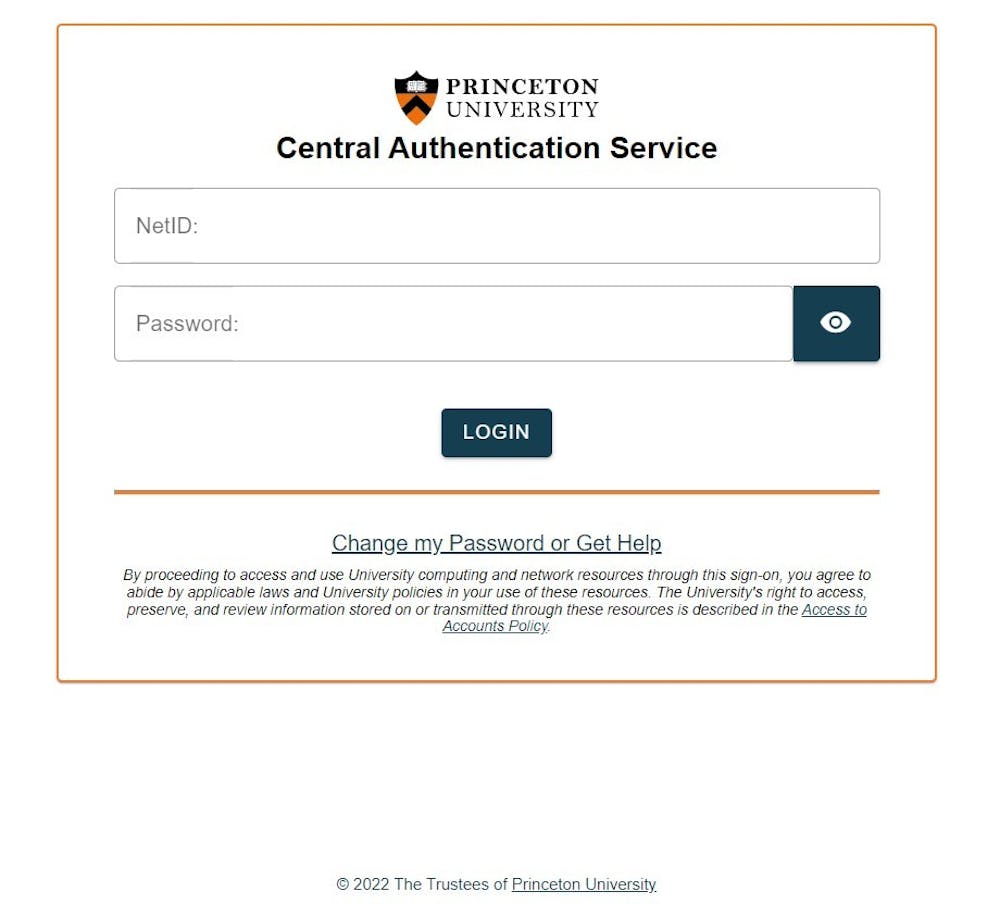Let’s face it: Princeton’s tech systems feel highly outdated. From laborious two-factor authentication to complicated meal exchange and appointment-making systems, many of Princeton’s digital programs are tedious, time-consuming, and discouraging. Here are a few of the technological updates the University should consider.
Make Meal Exchanges More Convenient
Meal exchanges are notoriously difficult to coordinate: you have to find the meal exchange website, sign in, search up the last name (only last name) of the person you want to exchange the meal with, send them a meal exchange invite, then finally go to the dining hall/club to eat. With the widespread prevalence of smartphones, why not adopt a QR code-based system integrated into an app instead? All students would have to do is search up a name and the app would generate a QR code for the meal exchange recipient that the dining hall/club could scan.
By facilitating the process of coordinating meal exchanges, students in different eating clubs and class years would be encouraged to interact more with each other. Eating clubs, by their very nature, already perpetuate divided social environments, while the dining hall plans allow enrolled students to eat at any of the four undergraduate dining halls. Making meal exchanges more straightforward would increase inter-group social interactions and foster a more inclusive social environment rather than one characterized by group divisions.
Create a UHS App
The only way to book an appointment for health-related services is to call the University Health Services at McCosh. The problem is, the office is only open for an average of eight hours a day. The MyUHS website should be made accessible via an app that allows students to make appointments 24/7. Students should be able to see what appointment slots are available and whether a suitable doctor will be in office at the time of the anticipated appointment. Having a nurse available 24/7 will let students communicate virtually with nurses when they feel unsure about going to the infirmary.
This online appointment making system for UHS could have a similar function to the current WASE (Web Appointment Scheduling Engine) system Princeton uses, which will be replaced by Microsoft Bookings sometime between July and August of 2022. WASE and Microsoft Bookings are the go-to resources for booking appointments at Princeton and it would make sense for the University to extend this to include UHS appointments.
Touch/Face ID Compatibility

Gone are the days of lengthy passwords and laborious authentication systems. Many electronic devices and apps now have alternate methods of logging in, including touch ID and face recognition. With a simple tap of a finger or a glance at the camera, we can unlock our devices, authorize credit card purchases, buy an app on the App Store, or sign in to our favorite social media accounts. Princeton should integrate these technological advancements into Canvas, the Central Authentication Systems (CAS), and other University-affiliated websites that require login credentials. TigerHub should be made accessible on mobile devices, and include a facial recognition and touch ID login feature. Touch/face ID authentication could also be an option for unlocking doors in the dormitories to prevent lockouts. This, however, would require a significant amount of funds to replace the current lock system.
Alternative forms of authentication such as touch/face IDs have proven to be safe from fraud and effective. In fact, Apple claims that there is a one in 50,000 chance that someone else’s fingerprint will falsely unlock your iPhone and a 1 in 1,000,000 chance that someone else’s face will do it. One might argue touch/face IDs may even be safer than regular authentication systems such as Duo Mobile. For example, if a thief had access to an unlocked mobile device, they could easily open Duo Mobile and authenticate a sign-in themselves. With touch/face ID, the thief would be unable to sign in to any account without having the owner’s fingerprint/face present, even with an unlocked device.
Simply put, Princeton needs a software update. The University should embrace new technological systems that make Princeton’s digital programs more accessible than ever before. These technologies are already widely available and quite common in our everyday lives. It’s about time that Princeton adopts them as well.
Prince Takano is a sophomore from Los Angeles, California majoring in Politics. He can be reached via email at takano@princeton.edu.









